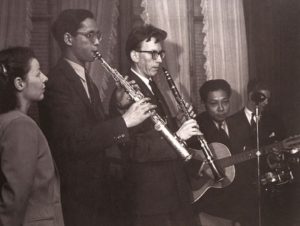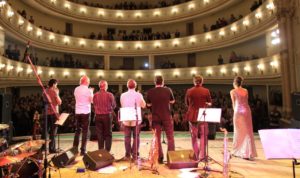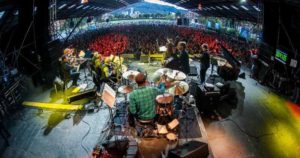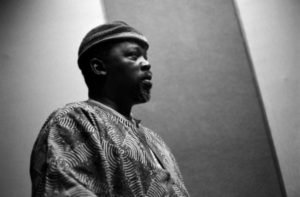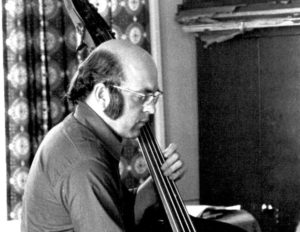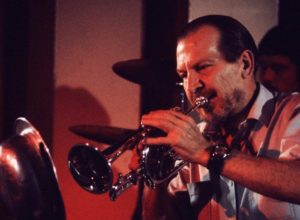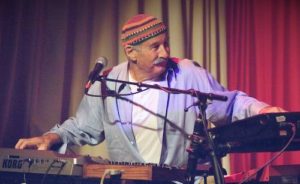Jazz in China
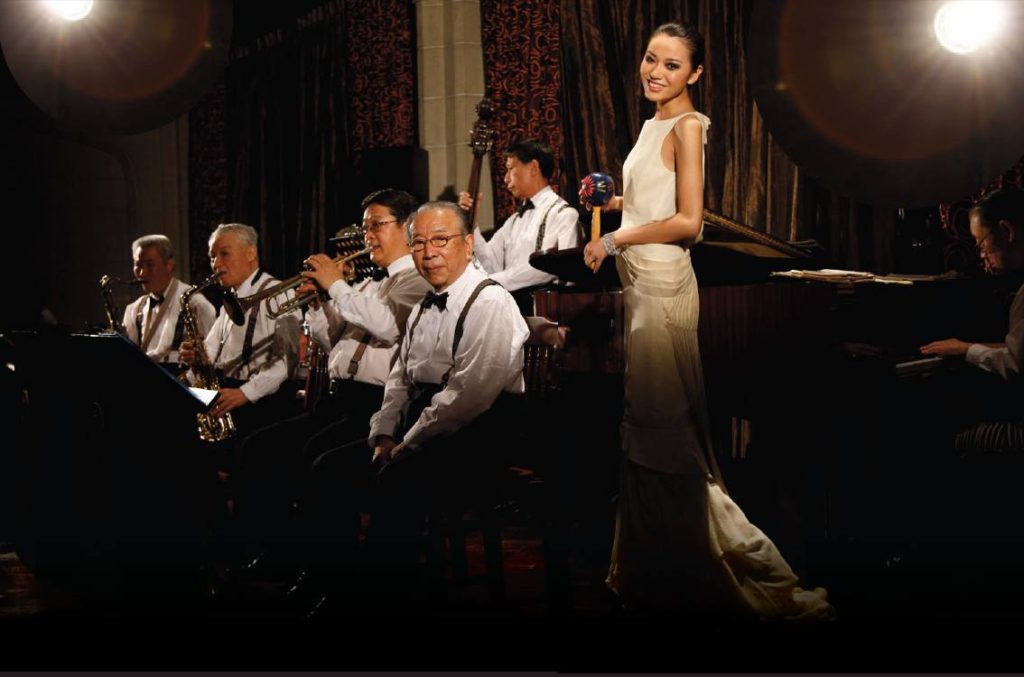
Following the collapse of the Qing dynasty and the chaos of the Boxer rebellion in the early part of the 20th Century, China was left divided and dominated by foreign colonial and business interests. A glamorous side effect was that the port of Shanghai, China’s international business hub, experienced a glamorous multi-cultural ‘jazz age’, based around the ‘Bund’ – the French Concession in Shanghai’s International Settlement. The ballrooms of grand hotels hosted a rich international clientele, and bands playing American jazz were in high demand. The owner of the Carlton Cafe, Louis Ladow, brought over a Whitey Smith, a Danish-born jazz drummer he discovered in San Fransisco, to play for his Western clientele in 1922.
Drummer Jack Carter’s Serenader’s arrived in Shanghai in 1926, as part of a tour that also took them through Calcutta, Singapore and Jakarta. Featured acts in the band were female singer-trumpeter-dancer Valaida Snow and stride pianist, Teddy Weatherford, whose extraordinary globe-trotting means he will appear several times on this site. When Carter and Snow returned home, Weatherford elected to stay in Shanghai. He soon became the featured attraction at the Canindrome, a combination dog track and ballroom. In 1934, Weatherford was sent by his employers – Mr Tung and Mr Vong (the ‘fat one’ and the ‘skinny one’ as they were respectively, but not respectfully, known) – to bring back more African American talent. Weatherford recruited the 22 year old trumpeter, Buck Clayton, and his LA-based band, the Harlem Gentlemen, for what would turn out to be an influential three year sojourn in China.
Li Jinhui (1891-1967), known as the ‘father of Chinese popular music’ was already a successful composer and impresario in China when he met Buck Clayton. The 40-something Li was fascinated by jazz and Clayton helped him with scores and added some of Li’s songs to his band’s repertoire. Li organised his own Chinese bands, which incorporated some jazz instrumentation with his folk-inspired melodies. Among singers who he worked with were future film stars, Wang Renmei and Zhou Xuan. Clayton left China in 1937 and moved to Kansas City to join the Count Basie Orchestra.
It was hard for Chinese bands to get gigs in the 1940s, where the dance halls were dominated by foreign bands, often from the Phillipines. The Russian Oleg Lundstrem‘s orchestra performed at the prestigious Paramount Dance Hall in the early 1940s. Pianist Yu Yuezhan, who had studied music in Tokyo, put together a group of Chinese musicians to form what is considered the country’s first jazz band, holding down a residency at a Japanese owned dance hall from 1935. The band was made up of two trumpets, a trombone and three saxophones, along with piano, bass and drums, but sadly they did not record, so we can’t say for sure what they played. An earlier ‘Chinese Jazz Band’ toured New Zealand in 1927 under the leadership of Sun Moon Lee, but from contemporary descriptions, the word ‘jazz’ seems to be synomous with ‘exotic’ or ‘oriental’ in this case. Another band that has been cited as the first all-Chinese jazz band, was that of the Jimmy King Jazz Band, which performed regularly at the Paramount Dance Hall from 1947. We know much more about this band, as surviving members have given interviews, including pianist Cao Ziping, percussionist Bao Zhengzheng, bass player Zheng Deren and trumpeter Zhou Wanrong.
The Shanghai jazz world came to a screeching halt following the Communist revolution of 1949. Jazz was demonised as ‘reactionary music, and many musicians had their instruments confiscated, and were subject to a period of rehabilitation. A generation of budding jazz musicians found themselves either giving up music entirely, or having to make a living by playing for revolutionary operas. It wasn’t until after the death of Chairman Mao in 1976, and the reforms of Deng Xiaoping, that Western music was heard again in China. In 1980 the Peace Hotel in Shanghai asked Zhou Wanrong to put together a jazz band to recapture the glamorous pre-revolutionary days, and was still making cameo appearances with the band (on maracas now) in 2019, at the age of 99. His presence, along with other veterans of the 1940s, makes the Peace Hotel Old Jazz Band, the oldest jazz band in the world, in terms of the musicians’ average age.
Content added so far:
- Partial history of jazz in China (above)
- Profile of Toshiko Akiyoshi, born in Manchuria
- Profile of bandleader Oleg Lundstrem
